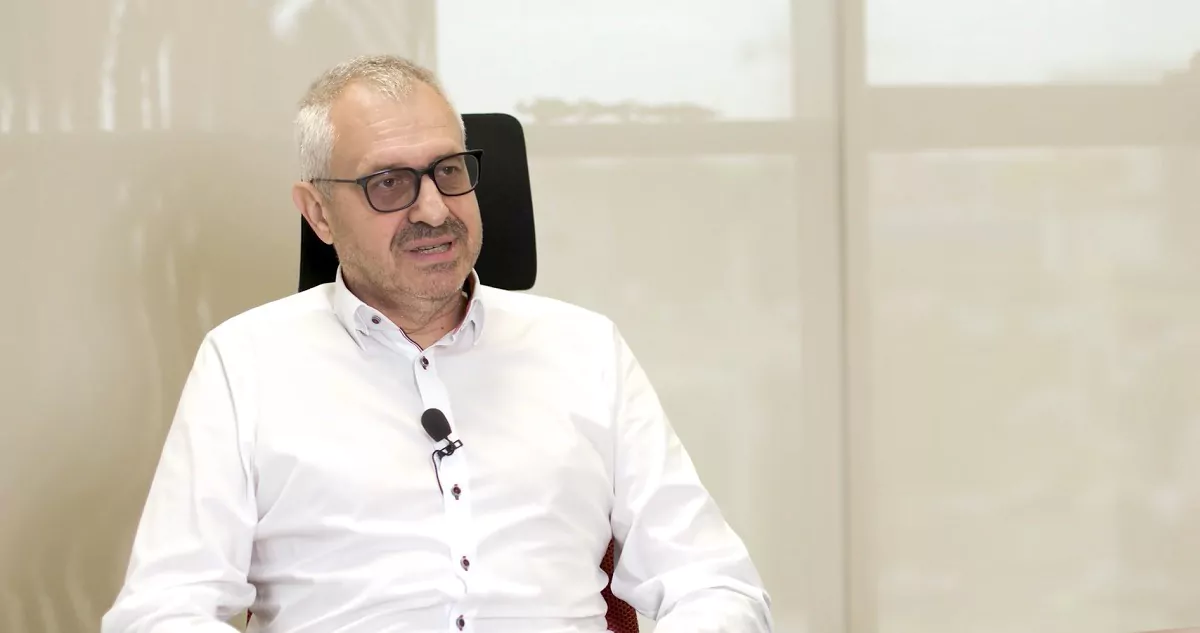Siemens factories in Romania have been running on growth, with no major problems in the running of the business, despite the pandemic, but one of the challenges has been adapting the systems to work from home. Instead, the company is now planning to move globally to a hybrid work system – 50% office, 50% home, said Cristian Secoșan, CEO of Siemens Romania and Moldova, in an interview with Economedia. According to him, we are still facing a labor shortage and most likely will not overcome the staffing crisis. Instead, the pandemic has accelerated the digitalization trend, and what “we thought would happen in 10-20 years has happened in two”, says the Siemens official. According to Secoșan, cybersecurity, data analytics, energy storage and hydrogen will be the hot topics of the future.
Urmărește mai jos producțiile video ale Economedia:
- articolul continuă mai jos -
Highlights from the interview:
- We had no major problems in carrying out our work and I can tell you now that the results of our work were at a good, even very good level, considering the conditions under which it was carried out.
- As a challenge related to the management of the pandemic, obviously it was how we managed to adapt our systems to working from home and over a long period of time. The IT systems were a bit creaky and we had to adapt on the fly, but in a very short time – no more than two weeks – we managed to get everything in place.
- How will the work be done in the future? Definitely in a hybrid system. This is not only happening in Romania, but also worldwide. We aim, as a company, so globally, to implement this hybrid system in all areas where it is possible, going up to 50% of time spent at home, in the home office and 50% of time in the office.
- In Romania we have been in a pretty good situation, all the factories that we have in Romania have been operating at normal levels, even operating on growth.
- However, today there are some problems, global problems, in fact, related to the supply of materials, to the increase in material costs.
- For those with higher education qualifications, Romanian universities and Romanian higher education offer quite well-trained people, but only if we in the business world get involved and try to support them.
- We are facing shortages now, we have faced them in the past and we will face them in the future. Both on the production side, for medium-skilled people, and on the high-skilled side, especially for R&D, which has a very strong IT component.
- The income level has come close to what they can get in the West. Obviously there are other things that are needed, related to the quality of life and the conditions you have in general, it’s not just about the money you can earn. But here, too, important progress has been made and there are many cities in Romania that offer conditions similar to those in the West.
- I am almost convinced that we will not overcome the staffing crisis, it will continue to exist, and the need for manpower, especially in the area of high skills and with a focus on IT, the need will continue to be very high and the shortage will continue to exist.
- This digitalization trend had started before the pandemic and there were already a lot of jobs in a process of change. The pandemic has only accelerated or catalyzed this trend. Everything we said or thought would happen in 10-20 years’ time has happened in two.
- Cybersecurity is the business that I believe will take off in the near future in an extraordinary way. Think about the fact that the danger has increased tremendously by the way we work.
- There are at least two very important things being talked about now. Energy storage, storage that has a very important connotation related to other types of technologies such as electric cars in applications for those batteries. But also hydrogen, which is now seen by a lot of people as the fuel of the future.
- What we all want and what I think needs to happen would be the implementation of digitalization also in the administrative, state and governmental area. There is great potential there and there is also a great desire on the part of the population and companies to be able to do things more easily and quickly.
- Romania needs a lot of projects. Some things have already started, such as modernizing the railways. There are quite important projects, some are unfortunately very late. We need efficient rolling stock, efficient trains, efficient trams. We need a network of charging stations for electric cars.

 Sursa foto: Economedia / Inquam Photos
Sursa foto: Economedia / Inquam Photos